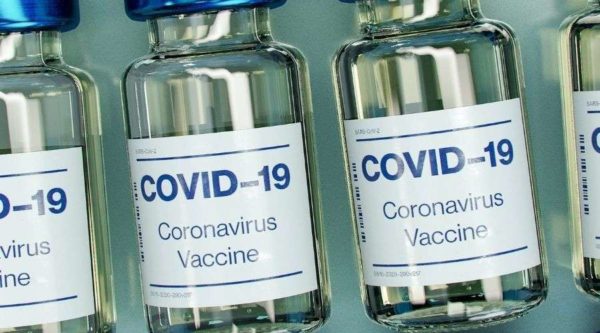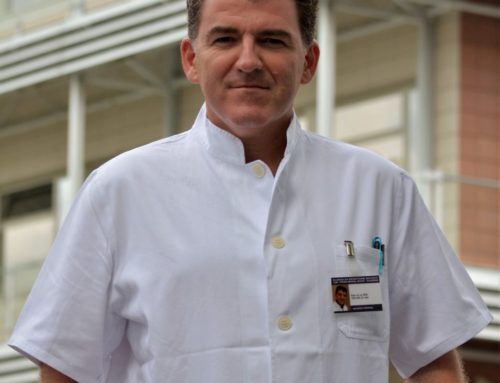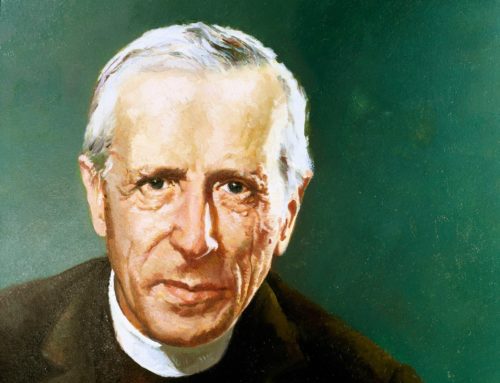Discerning the science and civil discourse are key.

Ann SchneibleNationJanuary 24, 2022
WASHINGTON — Millions of health care workers throughout the U.S. are facing mandatory vaccinations following the Supreme Court’s decision earlier this month, as medical professionals find themselves caught in the crosshairs between scientific truth, human freedom and political divides.
The Supreme Court voted 5-4 to permit vaccine mandates for health care employees during its Jan. 13 session, although it halted the implementation of the Biden administration’s test-or-vaccinate mandate for large companies that same day.
The mandates “make no sense scientifically,” said Gerard Nadal, president and CEO of the Coalition on Abortion/Breast Cancer, and a Ph.D. in microbiology. “We know that the vaccines don’t keep you from getting infected or spreading the disease,” he told the Register. “They’re designed to attenuate the impact of the infection once you get infected.”
The mandate for health care workers was slated to take effect on Jan. 27, according to a memo last month by the Centers for Medicare and Medicaid Services (CMS). It is estimated that 17 million workers at some 76,000 government-funded medical facilities will be affected.
Nadal, who supports the use of the COVID vaccine as a preventative against serious illness, is not alone within the health community for his opposition to government mandates.
“We generally impose mandates when vaccines are highly effective at preventing transmission,” said Deacon Timothy Flanigan, a doctor who is an infectious disease specialist and previous head of infectious disease at Brown University Medical School and deacon of the Diocese of Providence, Rhode Island. “The vaccines, though, are only partially effective at preventing transmission.”
Deacon Flanigan has cared for patients who have died of COVID-19, including those who were tragically separated from their loved ones in their final moments. Nonetheless, he told the Register that while he supports the vaccines, and believes that requirements may be considered for private companies or in health care settings, he opposes the mandates.
“I’m a strong supporter of our COVID vaccines, which are highly effective at decreasing severe illness and mortality, and I encourage all to get vaccinated,” Deacon Flanigan said. “But I am very much against mandates by the federal government and broad mandates that are punitive in the general workforce.”
CDF Document
Such opposition to government mandates falls in line with the Congregation for the Doctrine of the Faith’s “Note on the Morality of Using Some Anti-Covid-19 Vaccines,” which states that “vaccination is not, as a rule, a moral obligation and that, therefore, it must be voluntary.”
Dr. Aaron Kheriaty, who was fired in December from the University of California-Irvine School of Medicine for refusing to comply with his employer’s vaccine mandate, referred to the Supreme Court’s decision as “a strange irony,” during a recent interview with the Register’s Joan Frawley Desmond.
“The court has decided that the federal government apparently can only approve a vaccine mandate for CMS employees who are health care workers and presumably have more expertise in things like vaccines,” said Kheriaty, who refused the vaccine by claiming natural immunity from a prior COVID 19 infection. “I found that odd.”
The U.S. has reported more than 60 million cases of COVID 19, with nearly 850,000 deaths. However, while cases continue to surge with the Omicron variant, including breakthrough infections in the fully vaccinated, reported hospitalizations and deaths are on the decline in most states. To date, more than 60% of Americans have received the COVID-19 vaccinations.
Discerning the Science
Tensions in the discourse surrounding COVID-19 vaccines extend beyond legislation and policy, affecting the health care community and the culture at large.
“In the medical community itself, it’s hard to say that it’s an open discussion. I’d go so far to say it’s not an open discussion,” said Dr. Timothy Millea, a board member of the Catholic Medical Association, in reference to the vaccine debate.
“Anyone who doesn’t tow that party line — that ‘vaccines are the be-all and end-all; everybody has to do this’ — and instead proposes a ‘wait-and-see’” approach, “that discussion gets shut down,” he said. “If you say that [the vaccines are] dangerous, that discussion gets shut down.”
“The interplay with the politics, with the medicine, or the ideology with medicine, is also troubling when we’re supposed to be objective,” Millea told the Register. “We’re supposed to learn from experience. Learn from trials. Learn from each other.”
Meanwhile, these polemics within the medical community have repercussions for those who lack medical training and are attempting to discern the best decision for their health when it comes to COVID-19.
With the pandemic being a time in which non-medically trained people need to trust their medical providers more than ever, Nadal is particularly critical of some credentialed health professionals for having fomented confusion by touting faulty science — for instance, those who propose that the mRNA vaccines can alter a person’s DNA, an assertion which Nadal explains is not possible.
“It’s really hard, then, for me to turn around and say: ‘Look, trust me; don’t trust them because they don’t know what they’re talking about.’”
“My heart really goes out to laypeople in this pandemic,” Nadal said.
Politically a conservative, Nadal stressed the importance of paying attention to the data, rather than what the Democrats or Republicans are doing.
“We are biological organisms, and this is a virus that obeys the laws of physics and the laws of biology,” he said.
The virus “doesn’t care about Republican laws or Democrat laws or anything else. It’s going to obey the laws of nature — and only the laws of nature.”
“I think that our discourse should come back to: What does the data tell us?” Nadal said. “And how reliable are the data? Are the studies well designed?”
Civil Discourse
A common thread among the health professionals who were interviewed by the Register is the dismay over the divisiveness in the conversation surrounding the COVID vaccines.
“It’s basically the battle of the expert witnesses,” said Nadal. “Just pick somebody who says something that agrees with your worldview.”
The pro-COVID vaccination narrative, for instance, has so dominated the social conversation that concerns about the vaccine are frequently dismissed as being anti-vax, anti-science and conspiracy theorist.
“Many people don’t get vaccinated because they have concerns,” said Deacon Flanigan. He cited examples of people who have antibodies due to a prior COVID infection, such as in the case of Kheriaty. Others, he said, may have had bad side effects from the first vaccine shot.
“As a physician, I’m allowed to try and convince them. I’m allowed to provide data for them. I’m allowed to champion the vaccine — and I think that’s a good thing. But many medical providers will heap scorn and derision and stigmatize them. And we know that’s not effective and not helpful.”
“It’s bad medicine to stigmatize. It’s bad medicine to treat people with scorn. It’s bad medicine to be punitive,” Deacon Flanigan said.
Millea, who supports the vaccine but admits to having been initially hesitant and still reluctant to advocate it for teens or children, reflected that the timing of the pandemic contributed to the breakdown in dialogue, resulting in “a perfect storm.”
“At the time COVID developed, our trust in each other, our trust in our institutions, was as low as it has ever been in my lifetime,” Millea said. There was short-sightedness and “a tremendous lack of humility.”
“Where are you going to find that open debate? If you have an anti-vaxxer talking to a pro-vaxxer, they’re going to shut each other down. There’s just no exchange,” he said.
Church’s Wisdom
Those wishing to engage in constructive and respectful dialogue would do well to seek the wisdom of the Church, said Dr. Barbara Golder, a physician, attorney and bioethicist.
Drawing on the Catechism and Jesus’ “admonition about disagreements,” her advice is to talk over disagreements without giving into temper and gossip and asking for help in seeing “things from another perspective.”
Additionally, we must “respect the dignity of every person,” Golder said. “For starters, we simply must stop calling our ‘opponents’ names.”
“The fellow who disagrees on the subject of masking isn’t an idiot; he sees a different set of values and facts and weighs things differently,” she said. “I am appalled, by the way, at the regularity with which some leading Catholic voices ignore this principle — and not just on the topic of vaccines.”
Golder stressed that questions do not usually have “black-and-white answers,” adding, “Our responses will depend on our gifts, limitations, formation and experiences.”
“Those whose perspective differs from our own may have as much to offer us as we think we have to offer them. We need to learn to listen to learn, not just listen to reply.”
“Fear drives a lot of what we do, doesn’t it?” Golder said. “This is no different. For me, the biggest challenge we face is learning to live in the gray when we have such a hunger for the black-and-white.”
“We have to learn to accept that, in matters like this, people of good faith (whether Catholic or not) can come to different and equally acceptable, resolutions of these important questions. And that’s okay.”

Ann Schneible Ann Schneible is a freelance journalist who currently resides in Virginia with her cat, Cordelia. From 2017-2021, she served as the communications director for Courage International. Prior to this, she worked as a Rome correspondent for ZENIT and Catholic News Agency/EWTN, a collaborator with Vatican Radio, and a translator for L’Osservatore Romano. She has an S.T.L. in Institutional Church Communications from the Pontifical University of the Holy Cross in Rome, and a B.A. in English literature from Christendom College.










